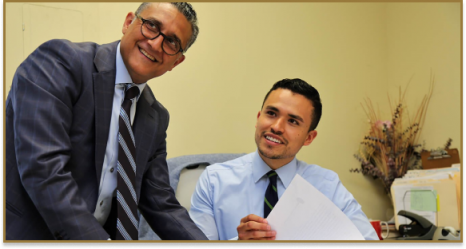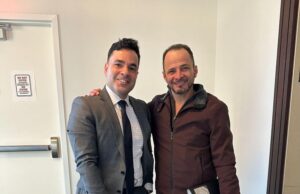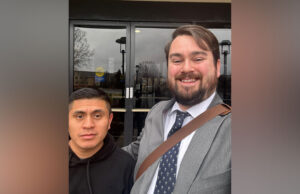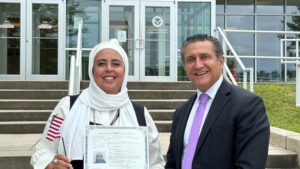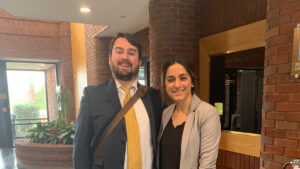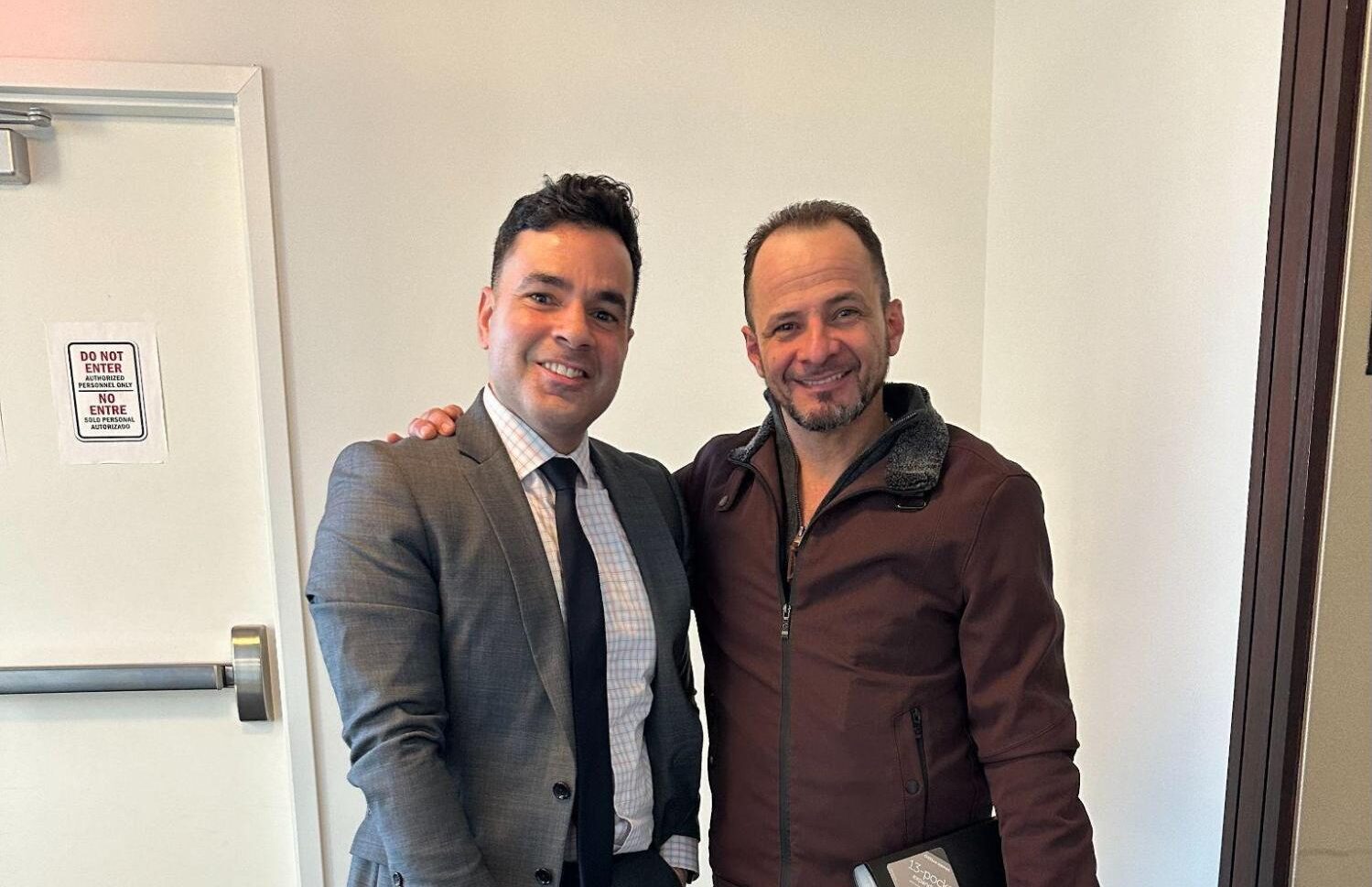El Movimiento de Inmigración
30 abril, 2014
En enero pasado se celebró el día de Martin Luther King y con él se celebró tambien el movimiento de derechos civiles en este gran país. Y con la celebración del duro camino a la igualdad de oportunidades y derechos civiles para todos no podemos dejar de recordar el largo camino y la dura lucha por una nueva ley de inmigración.
Alguien puede preguntar: ¿Por qué la inmigración? Y que tienen en común el movimiento civil y el movimiento de los inmigrantes en Estados Unidos?
La verdad y la cuestión es que ambos movimientos tienen mucho en común, y usted y yo, mi respetado lector, vamos a explorar estas áreas comunes.
En primer lugar, ambos son derechos fundamentales. El movimiento de derechos civiles fue una lucha justa por los derechos fundamentales a la igualdad, los derechos y obligaciones dentro de la misma sociedad. Después de liberar a los esclavos, muchos en Estados Unidos pensaban que la lucha por una mejor sociedad había terminado. Pero poco después, muchas personas se dieron cuenta de que esto era sólo el punto de partida para una batalla más importante, la batalla por la igualdad en la sociedad entre personas blancas y personas de color. Muchas décadas pasaron antes de que un valiente visionario hubiera creído en este gran sueño y movilizado a la sociedad para corregir el curso de la historia una vez más.
En este sentido, la lucha por unas leyes de inmigración justas y más humanas es una pelea muy similar. Como ustedes saben, el sistema de inmigración de los EE.UU. es lo que lo convirtió en un gran país. El sistema de inmigración es el que ayudó a la economía para convertirse en la más fuerte del mundo. Disposiciones inteligentes y justas del sistema de inmigración hizo que los EE.UU. se convirtieran en una máquina de drenaje de cerebros de todo el mundo.
Ese mismo justo sistema es lo que hizo que muchas personas que en su país fueron maltratadas en su dignidad; encontraran un refugio la paz y la prosperidad en este gran país de libertad y oportunidades. Sin embargo, en las últimas décadas, el sistema de inmigración ha dejado de progresar y ha sufrido una gran cantidad de restricciones y regulaciones anti- humanitarias.
A pesar de que el Congreso aprobó dos importantes reformas de inmigración (1986 y 1996). Esas dos reformas no lograron estudiar la dinámica de las nuevas reglas del juego económico y lo más importante, no reconocieron el aumento de los conflictos internacionales y regionales y la necesidad de leyes y reglamentos más humanitarios.
Es cierto que ambas reformas migratorias, incluían las disposiciones de una amnistía para los indocumentados que en ese momento residían en los EE.UU., pero también ambas reformas trajeron una gran cantidad de nuevas disposiciones anti-inmigrantes que restringían más a los inmigrantes de los últimas dos décadas para conseguir beneficios migratorios como los que obtuvieron esos beneficios en su momento.
Todos estos factores crearon la necesidad de un movimiento de inmigrantes similar al movimiento de los derechos civiles de los años sesenta para corregir el curso de la historia y establecer una vez más nuevos principios fundamentales, leyes modernas y regulaciones de inmigración para poder competir de nuevo en el mercado internacional y para dar un refugio a los que buscan la libertad y luchan por los derechos humanos en todo el mundo.
En segundo lugar, ambos, el movimiento de los derechos civiles y el movimiento migratorio, empezaron con un gran sueño y con una persona que creyó en ese sueño, y esa persona no estaba dispuesta a comprometer su sueño por ningún precio.
Este espíritu inspiró a millones de personas y movilizó a toda la nación por una sociedad libre de la segregación. Un movimiento que fue hecho por una leyenda que aún hoy vive e inspira a las nuevas generaciones. Todo porque un hombre creyó en un gran sueño.
Hoy en día, también tenemos un gran sueño. Un sueño por mejores leyes de inmigración. Un sueño por leyes que den mejores oportunidades a las personas de todo el mundo para invertir sus ideas y su dinero en la economía de EE.UU. Un sueño por mejores regulaciones de inmigración que permitan a los jóvenes inteligentes de todo el mundo poner en práctica sus ideas y poner su mente a trabajar para y por la economía de EE.UU. Un sueño por mejores leyes de inmigración guiadas por las estadísticas y dirigidas por la necesidad del mercado de tener trabajadores temporales no inmigrantes calificados.
Y finalmente, un sueño por mejores reglas y regulaciones de inmigración que den a los que tomaron esta tierra como de ellos, para que puedan vivir y trabajar legalmente y ser capaces de criar a sus hijos nacidos en los EE.UU., con dignidad y sin miedo a la separación.
En el movimiento de derechos civiles Martin Luther King, fue el soñador y en el movimiento de los inmigrantes de hoy, tenemos un ejército de jóvenes inmigrantes indocumentados que fueron criados en este país, a ellos se les llama “soñadores”.
Estos dos movimientos nacieron por el miedo, y lo lograron sólo cuando encontraron una manera de eliminar el factor miedo.
Hoy en día, a medida que avanza el año 2014, es importante recordar a todos que el movimiento de los inmigrantes ha llegado a un momento histórico crucial, debido a unos DREAMERS valientes que iniciaron este movimiento moderno.
Su actitud es lo que va a lograr que la reforma migratoria integral llegue a la línea de meta. Pero tenemos el deber ético de apoyarlos y reunirnos detrás de ellos para mantener el impulso.
Nash J. Fayad , Ph.D.
Abogado y Consejero en la Ley
Ley Fayad , P.C.
(703) 998-5390
fayadlaw.com
Introduction To Fayad Law, P.C.
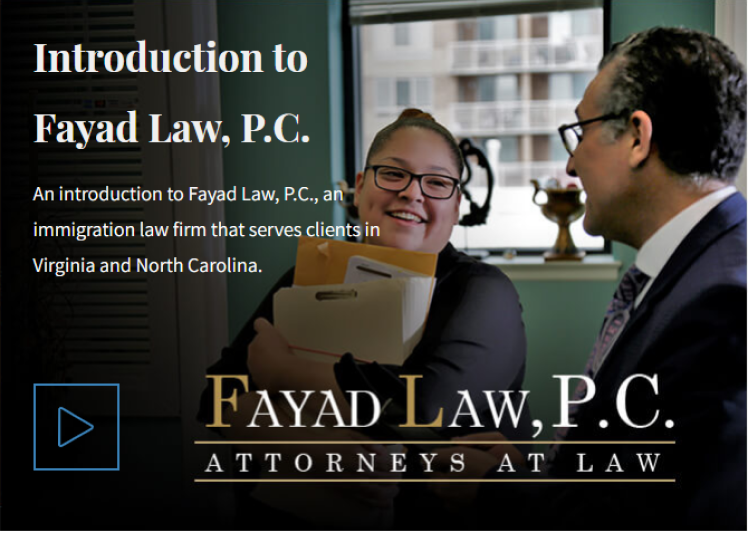
Latinos News
Have questions about your rights? Ready to discuss your
immigration case? Contact Fayad Law, P.C. now.
What Sets Fayad Law, P.C. Apart?

Firsthand Experience
as Immigrants

English, Arabic, French,
Russian, Spanish, and Farsi

Proven Track
Record of Success

Personal, One-on-One
Attention

You Stay Informed
at All Times

We Strive for Client
Satisfaction
FAQs - FREQUENTLY ASKED QUESTIONS
There are dozens of different types of visas available under the provisions of the Immigration and Nationality Act (INA), but they can all be placed in one of two categories: immigrant and nonimmigrant visas. The former is for individuals who are hoping to establish permanent residency with a green card and perhaps even to pursue the path to naturalization and citizenship. The latter is for those who are only planning a temporary visit to the United States, such as for the purpose of conducting business or attending school.
The INA sets limits on the number of people who will be permitted to immigrate to the United States each year using certain types of visas, while other visas are unlimited. Family immigration visas for the immediate relatives of U.S. citizens are available on an unlimited basis, while there are annual quotas set for the relatives of lawful permanent residents and extended family of citizens, with a maximum quota of 480,000. The number of employment immigration visas is limited to 140,000 per year.
Pathways to citizenship include service in the United States military and adoption, but a large percentage of all people who become citizens do so through the process of naturalization. The basic qualifications for naturalization include:
- Living in the U.S. as a permanent resident for 5 years (or 3 years for a spouse of a U.S. citizen)
- Being at least 18 years of age
- Living within the state where you will apply for citizenship for at least 3 months prior to the application date
- Being physically present in this country for at least half of the past 5 years
- Maintaining continuous residence in this country from the date you submit your application for naturalization
- Being able to read, write and speak English
- Have a basic understanding of U.S. government and civics
It is also necessary to supply evidence that you are a person of good moral character and are attached to the principles of the U.S. Constitution. We can assist you with proving these factors, as well as preparing your petition and helping you get ready for the tests.
In June of 2012, the Obama Administration directed the Department of Homeland Security (DHS) to begin applying a policy that is referred to as Deferred Action for Childhood Arrivals (DACA). Under deferred action, DHS is exercising discretion in its execution of the laws concerning deportation and removal of immigrants who are illegally present in the United States. Deferred action is not a change to the existing law, but is instead a change in the way that the law is being applied. You may qualify for relief under DACA if you were younger than 31 years of age on June 15, 2012, came to the U.S. before your 16th birthday, have continuously resided in this country since June 15, 2007 and are either currently in school or have already graduated from high school or earned your general education development (GED) certificate, among other criteria. With deferred action, you may be able to avoid being deported, though it does not grant any change of immigration status.
In its review of immigrant visa petitions, the U.S. Citizenship & Immigration Services (USCIS) weighs factors related to the ties that the prospective immigrant has in the United States and the reasons why he or she wants or needs to come to live in this country. For example, a family immigration petition will not be approved unless the foreign national has immediate relatives such as a spouse, mother or father, child or sibling already living here as a citizen or green card holder. An employment immigration petition is more likely to receive approval if the applicant has a job offer in this country and is coming to fill a position that cannot reasonably be filled from the local labor market. A foreign national who is fleeing persecution in his or her home country may be granted an immigrant visa as a refugee or asylee.
There are many strategies for challenging a removal action. If the proposed deportation is based on a criminal conviction, it may be possible to appeal the conviction in order to have it overturned. Another option is to petition for cancellation of removal, a type of immigration relief which is available to people who are of good moral character and whose deportation would subject a family member who is a citizen or permanent resident to extreme hardship. The key to success in stopping deportation is to take immediate action by hiring a Virginia immigration attorney from our firm as soon as possible. Contact us now at Fayad Law, P.C. for a confidential consultation and to let us get started on your case!
Fayad Law, P.C. maintains offices in Richmond and Fairfax, Virginia. We work with individuals, families, and businesses across the world, providing them with assistance in resolving the legal issues involved with helping their loved ones and employees to immigrate to the United States. We work directly with foreign nationals living abroad, guiding them through the process of obtaining immigrant and nonimmigrant visas for entry to the U.S.
Real Clients, Real Testimonials
Contact Us Today
Have questions about your rights? Ready to discuss your immigration case? Contact Fayad Law, P.C. now.
